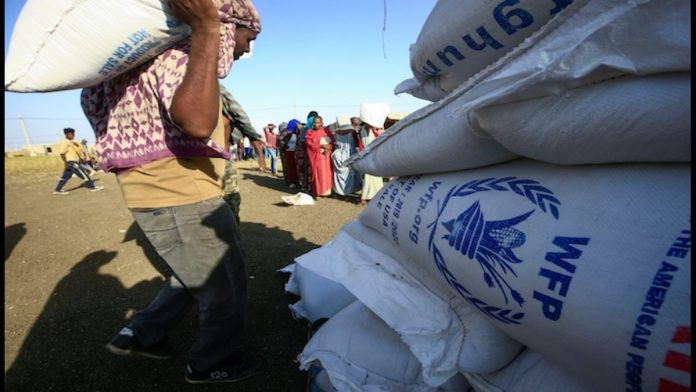News in Brief:
– The World Food Programme (WFP) has temporarily stopped buying food in Nigeria due to skyrocketing prices, impacting its ability to assist vulnerable populations.
– Citing concerns about limited stock and unstable market conditions, WFP will only resume local purchases when prices stabilise.Â
The United Nations’ World Food Programme (WFP) has announced a temporary suspension of local food purchases in Nigeria, citing a surge in food prices that threatens its ability to assist vulnerable populations.
The decision follows a recent monitoring exercise conducted by the organisation in states like Borno, Yobe, and Kano, which revealed significant increases in food prices. This situation has put additional strain on displaced populations who are unable to farm for themselves, further exacerbating their food insecurity.
WFP’s Country Director and Representative in Nigeria, David Stevenson, added that it is aware of traders holding food in their warehouses pretending it is WFP’s. “This is inaccurate,” he siad. “WFP has limited stock available and it is only used to continue supporting the most vulnerable Nigerians with critical assistance.”
Also, the WFP announced a comprehensive review of its local food procurement strategy in Nigeria. Stevenson explained that the organisation will resume local purchases only when market conditions improve and become stable for all actors.
This suspension poses a significant challenge to the WFP’s current goal of reaching 1.1 million people across Nigeria. Additionally, it casts a shadow of uncertainty over the planned expansion to assist 1.6 million people during the upcoming ‘lean season’, a period of historically high food insecurity.
The WFP’s decision underscores the complex challenges faced by humanitarian organisations operating in environments with high inflation and volatile market conditions. It also shows how local inflation affects international organisations as we already saw in the case of Olam Agri.



